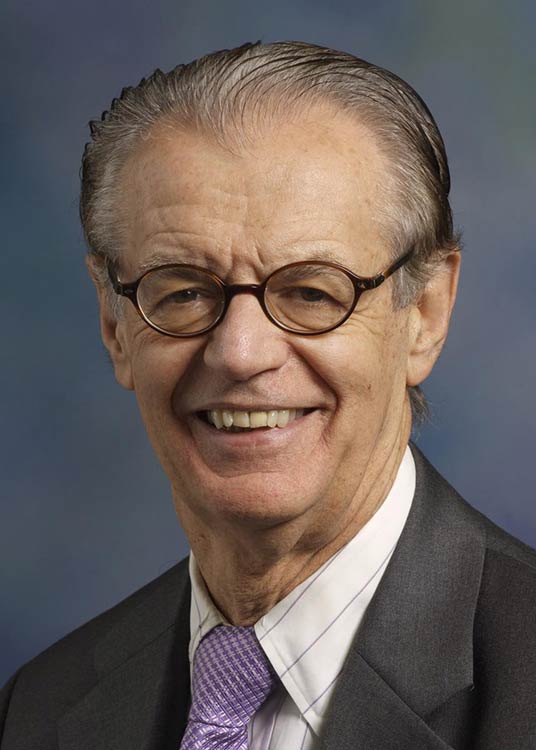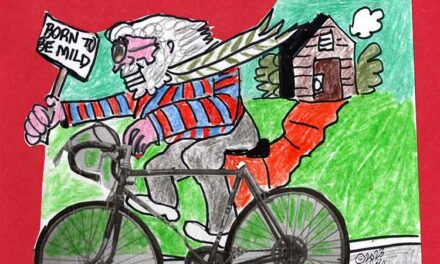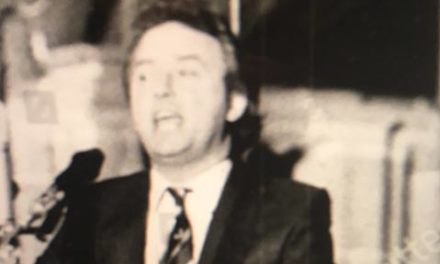A New Book Advocates for Full Employment of Individuals with Autism
For the co-authors, the matter is political, social—and deeply personal
By Ed Goldman
Dr. Lou Vismara is the co-author of a thoughtful and timely new book, “The Autism Full Employment Act.” But the title is a misnomer. There really is no Act.
But there ought to be.
Dr. Lou Vismara
The book is subtitled “The Next Stage of Jobs for Adults with Autism, ADHD, and Other Learning and Mental Health Deficiencies.” Released by Skyhorse Publishing and available at Amazon, it’s a collaboration between Vismara and Michael Bernick.
Vismara was a highly respected cardiac intervention specialist for decades who retired prematurely because of a variety of pain issues. He has since enjoyed a post-medical career working in high-level positions for key California elected leaders, as well as consulting with developers and educators. He co-founded the University of California Davis’s MIND Institute (the acronym stands for Medical Investigation of Neurological Disorders), which has become a globally renowned research and treatment center for autism and its affiliated societal challenges.
Bernick is an employment attorney with the global law practice of Duane Morris LLP. A Fellow with the Milken Institute, he’s also a former director of the California State Labor Department. I think he probably knows more about jobs than most mortals.
Both Vismara and Bernick are adjunct professors at Stanford University. And both have firsthand experience dealing with “people who have autism,” a descriptor preferred to “autistic people,” which caregivers, teachers, physicians, psychologists, and the social services community view as both labeling and limiting. The idea is that a person is much more than his or her disability.
Mark, who’s in his own home but with staff support, “doesn’t need the money he’d earn from a job if the Act was created,” Vismara says over a lunch salad in the atrium of Piatti Ristorante, in Sacramento. “What he needs is a purpose in life, a reason to get up in the morning and a situation in which he can interact with other individuals. Our children represent the equity and diversity of life. And we all deserve equal opportunities, regardless of intellectual capacity.”
While the book outlines six initiatives to make the act a reality, don’t approach it thinking it’s a dry, self-righteous political manifesto. Interspersed with methodologies are anecdotes and very human discussions about how companies can develop autism-friendly workplaces and what the “autism talent advantage” consists of.
The book contains some surprises. Two of the less-pleasant ones are:
The late Pulitzer Prize winner had a son, Daniel, who was born with Down’s Syndrome, a more familiar challenge than autism, which has many iterations and degrees of capacity, and is usually a more visually recognizable one. Miller shunted Daniel off to institutional care from the get-go, and only acknowledged his existence late in life (and in his will). So much for the author of the family-obligation drama “All My Sons” being mistaken for the prototype of Dr. Seuss’s Hop-On-Pop.
This translates roughly as: Do as we say, not as we do.
Lou Vismara has four children, two by his first wife and two with his wife of 35 years, Wendy, who left a physical therapy practice years ago to provide ongoing support for Mark. Their daughter Marissa, 31, works for the California Primary Care Association. Vismara’s other children, Laurie, who’s 42, works as an autism consultant; her sister Nicole, 40, is a fulltime artist.
Because Vismara and I have been friends for decades, I reluctantly ask him if he thinks his expenditure of time and resources on behalf of autism is in any way a salve for his feeling somehow guilty for fathering his fourth child when he was 50. What led to my question was an article in “Spectrum,” a website dedicated to autism research, reporting that “a large 2014 study based on Swedish medical records hinted that the odds of autism among children born to fathers older than 45 are about 75 percent higher than for children born to fathers in their early 20s.”
“I’ve thought about that, certainly,” he says. “But when I really want to feel terrible, I instead think about my own hubris.” When he came to America from Europe as a child, “I was skinny, I talked funny, I wore short pants because that’s what little boys wore to school when I was a kid in Italy. And to top it off, I played the violin. I was a complete misfit.
“But when Mark was a toddler,” he continues, “before he was diagnosed with having autism, he was just so beautiful and strong, I thought, ‘Ha! He won’t have to go through what I did!'” He pauses and glances into the middle distance, then offers a self-effacing grin. “I guess the moral is, ‘Be careful what you wish for.'”
Vismara says the book’s proceeds will go directly to PRIDE Industries. Based in the city of Roseville, about 20 minutes from California’s capital, PRIDE is a longtime employer of individuals with mental and physical disabilities. With corporate and nonprofit clients throughout the world, it’s proved that the only real barriers to full employment are the limits of one’s imagination and compassion.
“The Autism Full Employment Act” presents a clear pathway for breaking through those.
Ed Goldman's column appears almost every Monday, Wednesday and Friday. A former daily columnist for the Sacramento Business Journal, as well as monthly columnist for Sacramento Magazine and Comstock’s Business Magazine, he’s the author of five books, two plays and one musical (so far).















